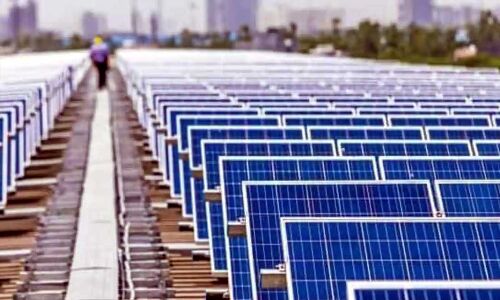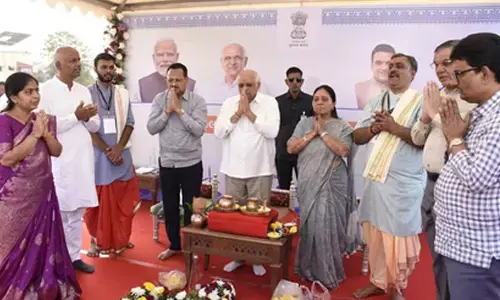How solar energy can address India's peak power demand

Mercury has been soaring. So is power demand. It is estimated that 1.9 billion units or six per cent of the total demand will be the overall shortage, making it the worst electricity shortage in over six years.
Mercury has been soaring. So is power demand. It is estimated that 1.9 billion units or six per cent of the total demand will be the overall shortage, making it the worst electricity shortage in over six years. The emergency has occurred due to multiple reasons for an unusual rise in temperature, rise in price of imported coal due to disturbance in supplies from Russia. Prices of coal globally have shut up from $60 per tonne to $203 per tonne. This has made import of coal difficult to make up the domestic shortfall due to rise in demand.
Globally coal power rose by nine per cent in 2021 to 10,042 TWh a new all-time high and 2 per cent above previous record set in 2018. It was the biggest percentage rise on record since at least 1985. New coal records were set in. India's coal power rose by 125TWh (11 per cent) in 2021, setting a new record by beating the previous best of 2018 of 4 per cent.
Coal market share rose from 72 per cent to 74 per cent of India's electricity. The increase in wind and solar was only the 3rd highest on record and met only 12 per cent of increase in electricity demand-coal filled up the gap. There is a need for substantial capacity addition through Roof Top Solar (RTS) at all consumption points preferably with micro-grids with four-hour storage to ensure uninterrupted quality power, addressing the peak demand and public safety power shutoffs. With proper policy, regulatory and financial support the MOEF target of 40 GW RTS can be fulfilled within a year thus a beginning can be made at de-carbonization and minimize such power crises.
This is the right time to examine the medium- and long-term issues relating to energy availability in the country considering growth in peak demand and emergencies due to environmental reasons, but the underlying tales of the power sector leads to be dealt with as well this is imperative otherwise to country to deal with such crisis repeatedly in the coming years. Immediately MOP has acted by advising government generating companies and costal power plants to import 10 per cent of their requirement, advised REC and PFC to extend working capital loan to IPPs and made Railways to cancel numbers of passenger trains for improving coal movement to name some of them.
In India our per capita electricity consumption is 1/3rd of world average, with make in India initiative to make India global manufacturing hub we are going to witness three-fold jump in our electricity demand in another 10 to 15 years. To address this demand, we need meticulous planning and timely implementation keeping in place the commitment India made at COPE26. We will also accept that our dependency on coal generation will continue, and we should not neglect it as dirty fuel and land into more severe crisis than the present one and may be forced for regular power cuts across all the sections and especially industry. On one side, increase/sustained use of coal will deteriorate the environment, causing more heat waves, natural disasters. Otherwise, we will have to experience massive peak shortage in the absence of meticulous planning and timely implementation. There is a need for substantial capacity addition through Roof Top Solar (RTS) at all consumption points preferably with micro-grid with four hour storage to ensure uninterrupted quality power, addressing the peak demand and public safety power shutoffs.








